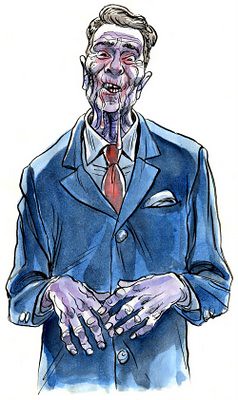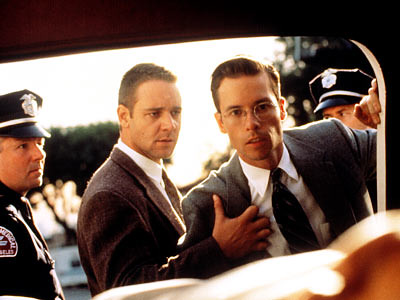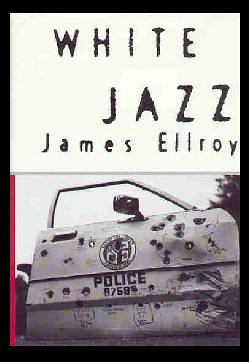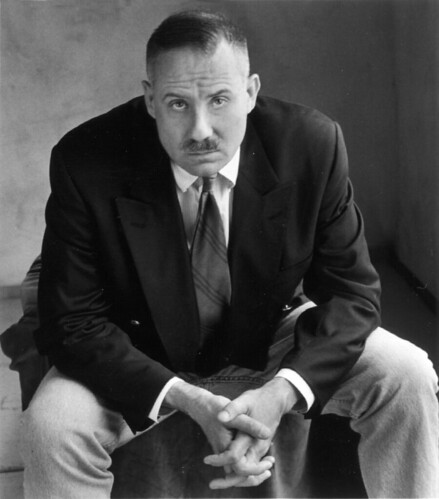 As we here at the Screenwriter's League recover from the holidays and get geared up for the year ahead, I'd like to take a moment to talk about a largely unrecognized show that I've just recently come to appreciate.
As we here at the Screenwriter's League recover from the holidays and get geared up for the year ahead, I'd like to take a moment to talk about a largely unrecognized show that I've just recently come to appreciate.My Name is Earl doesn't get a lot of recognition. As far as Thursday night NBC comedy shows go, it's kind of like the plain Jane in the popular clique. Placed inconspicuously right before one of the most powerful one-two punches on TV (30 Rock and the Office), My Name is Earl lacks many of the earmarks its prettier neighbors - few SNL or Daily Show alumni, hardly any cameos from anyone above the C-list, and it lacks that postmodern uber-self-referential shtick that is thiiiis close to being overdone.
Earl is a unique combination - taking the tried and true single-camera sitcom format and mixing it with skilled, creative casting, and rock-solid writing. Add in the ever-entertaining white trash setting and a dash of eastern philosophy, and you've got a recipe for an amazing, though inconspicuous show.
 Luckily "grew an awesome mustache" wasn't something he had to apologize for.
Luckily "grew an awesome mustache" wasn't something he had to apologize for.Because this is America.
The show follows Earl Hickey - a low-rent con artist and Joe Sixpack type. After winning $100,000 in the lotto and then promptly getting hit by a car, he writes a list of every bad thing he's ever done. With the help of his simple-minded brother, his psycho ex-wife, and a motel maid, Earl is trying to improve his karma by righting the wrongs he's done to people over the years.
What this translates to is a virtual golden goose as far as story concepts go - watching Earl in sequence helps, but this is one of the few good shows you can honestly watch in just about any order. True, as with any formula you have a few dud episodes here and there, but even when the story fails, it’s still damn funny. Each episode is its own self-contained gem, complete with a moral at the end and an impressive number of laughs.
The main reason for this is the impressive mix between the writing and the cast. The writing is witty, and extremely tight. In fact, if you need a quick primer in simple structure, watch a couple of episodes - you can set your watch by them, from inciting incident to conclusion. But the way the characters are written makes this predictable structure sing.
And the cast, headed up by the smugly charming Jason Lee, is full of unsung character actors who have honestly found a niche. Now, if you were an adolescent in the 90's, you will definitely remember Jason Lee from his roles in Kevin Smith's movies, most memorably as "Brodie" in the horrible, utterly classic Mallrats - a movie that by all accounts he stole. Even though I never really watched My Name is Earl before recently, I was happy just to see that Jason Lee was working steadily - so many of those talented actors that got their start with the Jersey Trilogy either faded into obscurity or - in the case of someone who shall remain nameless (but whose name rhymes with Ken Maffleck) - pissed away their talent for a hot latin ass and a Mark Stephen Johnson turd.

Beyond Jason Lee, the cast is fantastic. Ethan Suplee (which IMDB just reminded me was also in Mallrats as William the "I want to see the sailboat" guy), is both believable and hilarious as Earl's stupid but quite lovable brother, and the shining star of the supporting cast is Jamie Turner, as Joy - Earl's loud and slightly unhinged ex-wife. She won an Emmy for the role in 2007, and she's simply fantastic. What makes her so good is that her performance is overblown, but grounded enough to still be believable. And that also is where the creativity of the casting shines through - even minor one-off roles have been cast with a precision that's remarkable. This is what gives the world of My Name is Earl such a vast richness and relatability, even though there aren't giant season-long arcs - the characters are crystal clear without being two-dimensional. You "get" it immediately, and so there's no need for explanation, all you have to do is sit back and watch.
So even though it doesn’t have the fancy bells and whistles of some of the other Thursday comedies out there, Earl is definitely worth a watch. It’s a rewarding experience without the commitment of the more prominent shows. It’s kind of like a fuck buddy. Yeah, I’ll stand by that. My Name is Earl is like the perfect fuck buddy – entertaining without being too much of a tax on your time or energy, and is even more fun than a daytime hooker. Happy New Year.
The fourth season of My Name is Earl just ended on NBC, and the first three seasons are available on Amazon for $108.99
 DVD Junkie is a weekly review of TV Series on DVD. Kosmic only wrote this post sorta intoxicated and can finally cross “didn’t make fun of Ben Affleck on the internet” off her list.
DVD Junkie is a weekly review of TV Series on DVD. Kosmic only wrote this post sorta intoxicated and can finally cross “didn’t make fun of Ben Affleck on the internet” off her list.




















.jpg)















